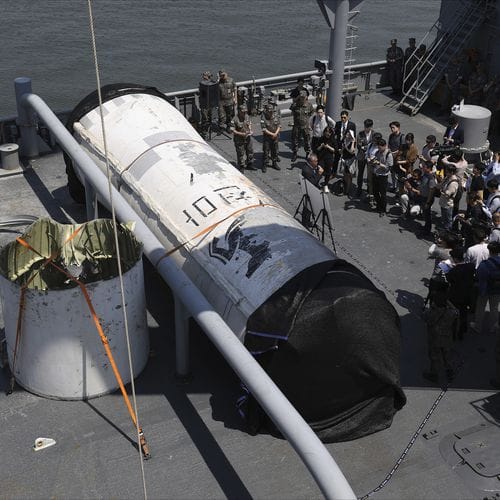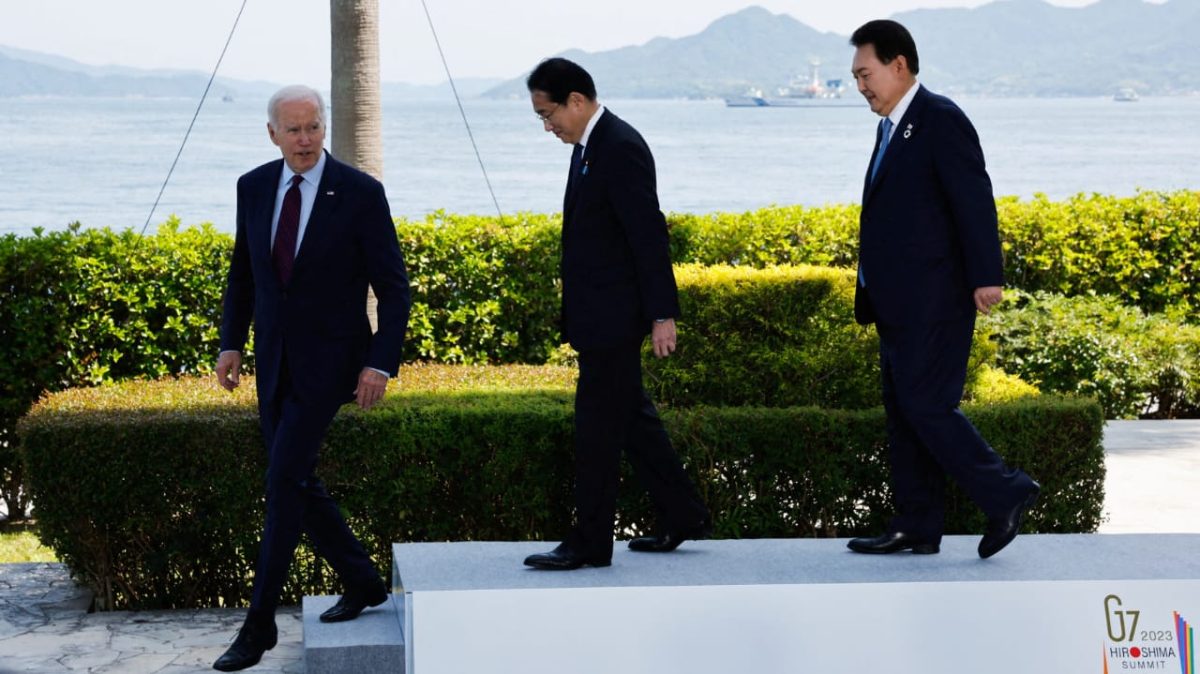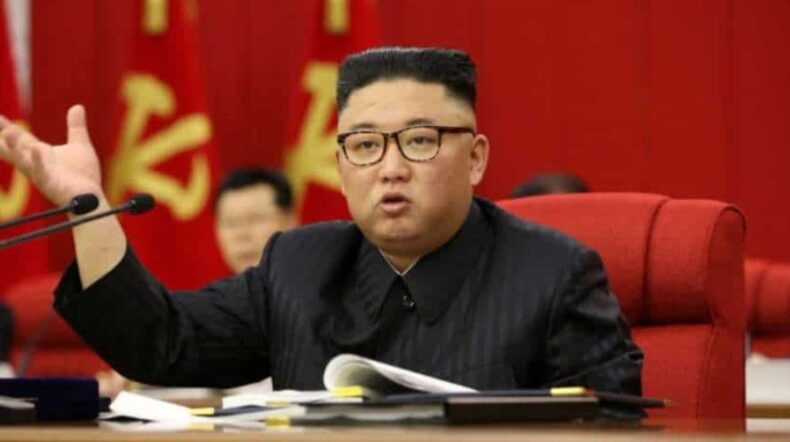North Korea might take military actions as a form of protest against an upcoming summit, Camp David that involves the United States, South Korea, and Japan, Yoo Sang-bum, South Korean legislator, informed reporters citing insights from the country’s intelligence agency.
During a confidential session with lawmakers, the National Intelligence Service revealed that North Korea could potentially attempt to launch a spy satellite sometime between late August and early September. This comes after their unsuccessful attempt to place their initial satellite into orbit in May.

Additionally, they are planning tests of long-range missiles and the launch of an intercontinental ballistic missile.
This move is believed to coincide with North Korea’s 75th anniversary on September 9th. Yoo Sang-bum, one of the attending lawmakers, shared this information after the briefing.
Yoo also pointed out that North Korean leader Kim Jong Un has emphasized the importance of conducting a launch in the latter half of this year.
He informed reporters on Thursday that North Korea was preparing for “provocations.” Yoo mentioned that support vehicles for a potential missile launch were observed in areas near Pyongyang.
Additionally, there have been frequent movements of propellants from a liquid fuel factory, as detected by South Korean intelligence.
CAMP DAVID
On Friday, US President Joe Biden is scheduled to host a meeting at Camp David, where he will be joined by South Korean President Yoon Suk Yeol and Japanese Prime Minister Fumio Kishida.

U.S. President Joe Biden , Japan Prime Minister Fumio Kishida and South Korean President Yoon Suk-yeol,
This meeting aims to strengthen the relationship between Seoul and Tokyo, especially in light of nuclear threats from North Korea and China’s growing assertiveness in the region.
North Korea has openly criticised the growing military cooperation among the three nations, expressing concerns that such collaboration might pave the way for a worrisome parallel resembling the formation of an ‘Asian version of NATO.’
US-S.Korea concerns over North Korea and Russia’s weapons exchange and military cooperation
South Korean intelligence, as quoted by Yoo Sang-bum, revealed that during a recent military parade in Pyongyang, Russian Defense Minister Sergei Shoigu engaged in significant defense cooperation discussions with North Korean leader Kim Jong Un.
Notably, Chinese officials were present at the parade as well. Additionally, South Korean intelligence indicates that Pyongyang is progressing with its plans to reopen its border with China.

“The National Intelligence Service is anticipating that Russia and North Korea will speed up their defence cooperation and is closely tracing movements” to spot any possible Russian transfer of nuclear missile technology to the North, he added.
Russian officials have recently visited North Korea to engage in discussions regarding military cooperation. South Korea has also observed indications of military supplies being transported out of Pyongyang via a Russian plane on August 8th, as reported by Yoo.
The United States has also accused North Korea of supplying weapons to Russia for its involvement in the conflict in Ukraine, which the US characterises as a “special operation.”
The alleged weapons include artillery shells, shoulder-fired rockets, and missiles.
However, Both Pyongyang and Moscow have denied engaging in any arms transactions.
The United States has implemented sanctions on three entities that it claimed were connected to arms transactions between the two nations on Wednesday.
South Korea’s foreign ministry expressed its approval of the recent U.S. actions and stated that it will also consider additional sanctions against North Korea.
The ministry said that these potential sanctions aim to hinder North Korea’s unlawful weapons development and arms trading activities.
During a briefing, a spokesperson from the ministry emphasized that all United Nations member states should promptly cease military cooperation with North Korea, which encompasses activities such as illicit arms transactions.
This call is aimed at preventing any actions that could jeopardize the peace and stability of the international community.













